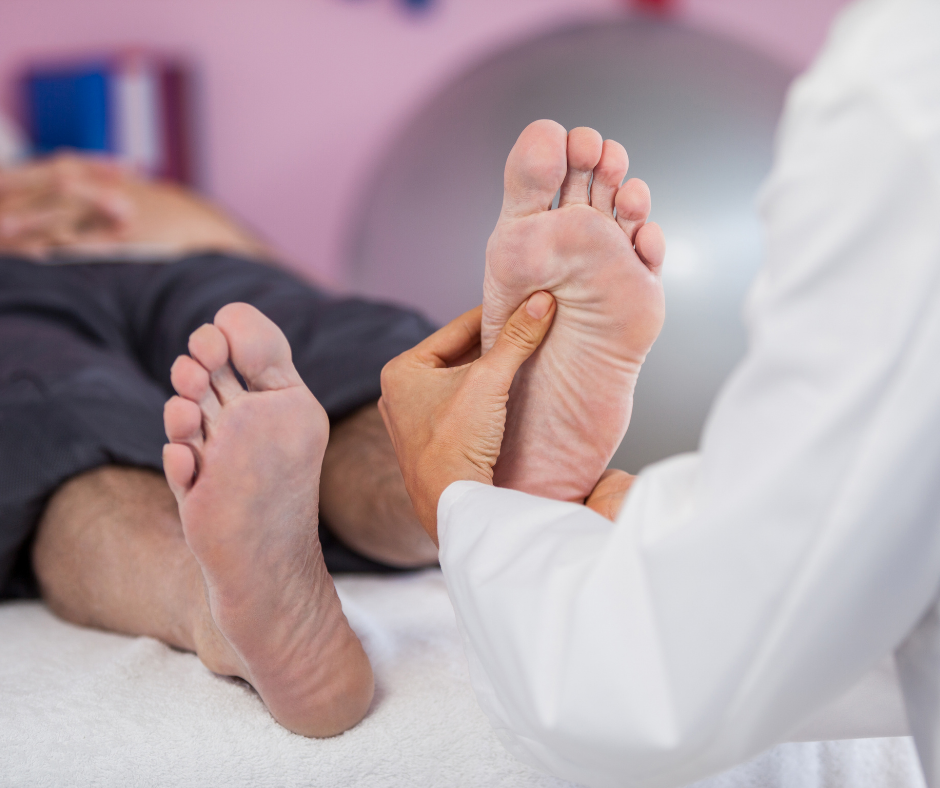It is possible for sores, blisters and cuts to heal themselves. Our bodies are able to heal themselves with the right amount of care and clean. When a wound does not heal within about four to six weeks, or becomes swollen, redder and leaking fluid, or has an unpleasant odor, this indicates that there’s something more serious happening. Sometimes, a sore that is small may turn into an unhealing leg or foot ulcer If left untreated, these can lead to serious problems, or even the need for amputations in extreme instances.
If you’ve been waiting and waiting for a sore heal, it could be time to seek assistance.

Certain Wounds Are Not Healing
Knowing the reasons why a wound won’t heal will help you and your doctor decide the best course of action.
In the beginning, if you suffer from diabetes, you’re more at risk risk of foot and leg wounds that aren’t healed well. The high blood sugar levels could damage your nerves (so you don’t feel any injuries in the event of an injury) and hinder circulation, making it difficult for even minor cuts to get better.
Poor circulation is another main factor that can be connected to arterial or venous ulcers. If your arteries or veins aren’t working it means that your blood isn’t providing enough oxygen and nutrients to repair your skin.
In addition, if you spend a lot of time either lying or sitting down because due to mobility problems, you may be prone to developing pressure ulcers (bedsores) another type of wound that can be extremely stubborn if not dealt with properly.
Apart from age, other elements, like certain medications (such as blood thinners) and autoimmunity disorders, or inadequate nutrition, may delay healing. There is a chance that a combination can cause a wound to persist.
How long will healing typically take What happens if healing does not happen?
It’s normal for people to question the length of time healing “should take”. In reality, it depends on the type of injury and your general health. A small cut or blister may heal in two weeks. If you have a foot ulcer that won’t heal or a leg injury which isn’t healing, it can last for 12 months.
The important thing to remember is this: if you’re not experiencing noticeable improvement after four to six weeks, don’t wait. It’s time to talk to a professional for wound care. The longer a wound remains open, the higher the risk.
Find the appropriate help for you
If your wound doesn’t heal, it’s not just “bad luck” or a reason to not pay attention to your body is trying to tell you that it requires help. What’s the positive side? Treatments and experts could make a difference. At our clinic, we specialize in treating non-healing foot ulcers and leg wounds, non healing foot ulcer working alongside your other healthcare providers to create a personalized plan that gives your body the best chance to heal and helps prevent amputations.
There are numerous options available to consider, whether they’re advanced wound dressings, or restoring blood flow. There are even specific therapies such as hyperbaric oxygen. We’ll be there for you at every step, because we are convinced that no person should ever confront with a wound that isn’t healing.
Final Thoughts
A wound that isn’t able to heal can affect the person in many ways, not just one. It could alter your life. But there is some hope. Do not hesitate to seek help if the wound or sore on your leg isn’t going away or if you’ve got an injury to your foot that isn’t healing. You can enjoy the life you desire without constant pain or worry about a painful wound if you act quickly.
